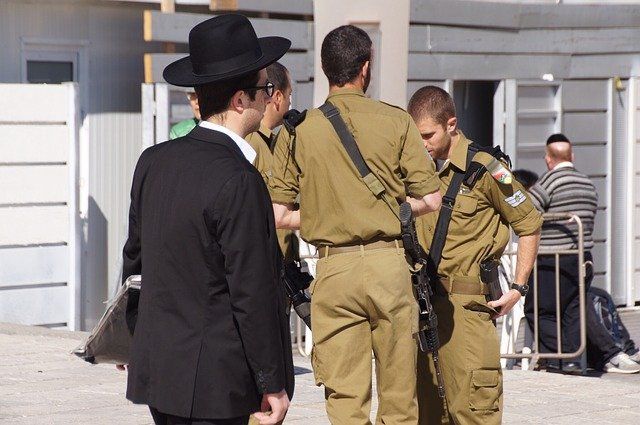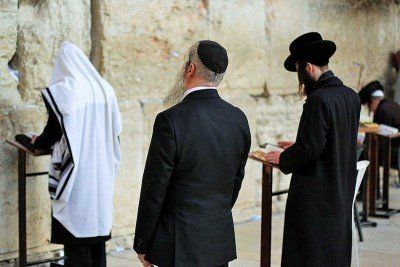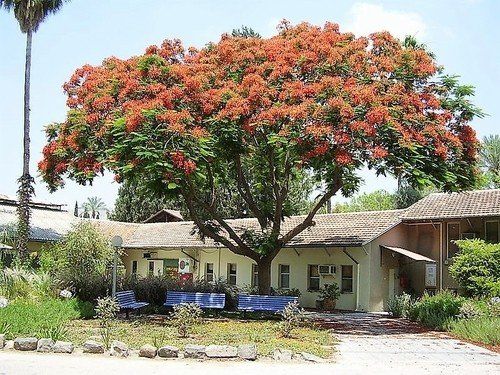From poverty to plenty
The modern State of Israel, established fifty years ago, is a remarkable phenomenon. A nation exiled for almost 2,000 years returns home under the most distressing circumstances the world has ever known. Torn and battered from the Nazi ‘holocaust’, the population has swollen from an initial 600,000 to now over 5 million. Israel has constructed a highly modern infrastructure, established world-renowned centres of learning, renewed the use of its ancient language (Hebrew), once spoken by prophets, and adapted that language for genetics, computers and space travel. Even though the nation has faced economic blockade and seven major wars, its standard of living has risen steeply. Competing with Holland in marketing flowers; exporting highly sophisticated agricultural systems to the USA; leading the world in cancer research; developing laser industries and ‘state-of-the-art’ computer software and military equipment, Israel is poised for the future. Few countries have more videos per household, more sophisticated ‘surfers’ of the Internet, or more start-up companies per capita. Few have better grounds for confidence in the future.
Social trends
The first major wave of immigrants was composed of idealists from Russia and Eastern Europe and was supported politically by interests in the West and financially by the generosity of Jewish philanthropists. But European pogroms and the Second World War created a different kind of immigrant, one who came out of necessity, but who then enlisted himself in the struggle for national and personal survival, by subscribing to Israel’s high ideals of humanity, labour and national unity. True, there were ideological stragglers, as there always are in human society, but these were the misfits, on the periphery of Palestinian and later Israeli Jewish society. ‘Zionism’ was something that everyone at least professed to believe in and practice, and ‘Zionism’ meant more than just national and territorial ambition. It meant justice for all and a kind and idealistic society.

Security
Then the harsh realities of life began to sink in to the national consciousness, eroding the idealism. The establishment of the Jewish State did not resolve the problems of humanity, nor even of the Jewish people. A growing number of disenfranchised Arabs (who now form the Palestinian people) constantly prodded the consciences of Israeli Jews and also challenged their internal security. Arab raids on buses and attacks on schools and synagogues, as well as hostility from the surrounding Arab nations, forced Israeli Jews to realize what great problems still faced them.
There were other serious problems from within. An ideology that had no moral rationale beyond the right of the Jewish people to survive could not bear the moral burdens of national life. A cynical ‘socialism’ further eroded the convictions of many; why work hard when all one needed was to learn how ‘to work the system’? The number of the willfully unemployed, or those employed outside the legal framework of work and taxation, has risen from some 400 to over 60,000, and is still growing. A crass form of materialism has replaced the humble idealism of the early days. Repeated wars, the tension of living in a nation subject to constant terrorism, international reprobation and the need to struggle hard for survival have led to moral cynicism. This has been exacerbated by the complete absence of an authentic moral voice in Israel.
Orthodox Judaism
When nineteenth-century settlers began working the land in Israel, they were confronted by the religiously Orthodox, who maintained that Israel was a holy land, the Jews a holy people and the study of Torah (the Law of God) the proper occupation for any serious-minded Jew who wanted to settle there.
The Orthodox, most of whom have remained anti-Zionist, have since learned to use the democratic system to manipulate society. Their political clout has increased to the point where they control the balance of power in Parliament. They have subjected successive governments in Israel to an accelerating process of unbridled extortion. Most Orthodox youth do not serve in the army and are not gainfully employed, except in the maintenance of their own religious institutions. Modern-day Judaism is not a moral force in Israel, quite the contrary. Senior Orthodox politicians have been brought to court on charges of corruption, embezzlement and misuse of authority.

As a result, the gap between the Orthodox Jew and average secular Israeli has widened. The increasing numbers of religious people in the country, resulting from the movement of thousands of people back into the strictest forms of Orthodox Judaism, has led to the estrangement of parents from children and husbands from wives, sometimes on the overt instruction of rabbis.
But secular Israelis have no viable alternative to offer either. Their materialism is no match for the arrogant confidence of the Orthodox, who claim to be representatives of a proud tradition that has lasted for thousands of years. Nor can altruistic humanism answer the challenges of the rabbi, who claims to speak for God himself.
The Orthodox are poised for the next stage. They are deliberately buying properties in secular environments, imposing an ever-encroaching process of restrictions on secular life, and preparing themselves for the day when they will form at least a small majority in the politics of Israel. Will God intervene? Will a firm and true foundation for Jewish national life be laid, as people turn back from dead Judaism to faith in Jesus Christ? Will there be the godly society for which the prophets called?
The church in 1948 – from plenty to poverty
The church in Israel has undergone many significant changes. Upon the ending of the British Mandate and the establishment of the modern State, most Jewish Christians left the country for fear of a new, confident, national Jewish antagonism towards anything that was not obviously Jewish. There was also the fear of invading Arab armies, and fears arising, even among believers, at the loss of the comfortable British social and economic umbrella. Until the middle 1960s, church growth was small and there were few Hebrew-speaking congregations and little local church leadership.
After 1948, thousands of Jewish immigrants flooded into the country, arriving destitute, having fled the ravages of war in Europe or the animosity of Arab countries. Genuine Christian compassion was aroused towards them. Care packages, food, medical services, clothing and blankets were contributed by Christians. Distribution centres functioned and there was much apparent evangelical good-will. But that good-will was also often misguided. Sincere desires to help soon became ‘opportunities’ for evangelism, as if one had bought the right to proclaim the gospel merely by providing a blanket. Within a short while the gospel became identified in the minds of people with material benefits, and conversion to Christ with the receipt of such. No one would listen any longer. The church was driven further onto the periphery of society and there it languished until the late sixties. Thus in 1963 there were only between 200 and 300 Jewish Christians living in Israel and only one (Finnish Lutheran) Hebrew-speaking congregation.

From poverty to promise
Today there are about one hundred congregations and house groups dotted around the country and 6,000 Jewish Christians with their families. There are two theological colleges, a theological education-by-extension programme, two Christian publishing houses, three magazines, two conference centres, a National Evangelistic Committee and a fellowship of congregations. The gospel is being proclaimed and God is granting the church significant growth. Socially, most believers have remained on the periphery, although there is an important trend back into the centre, enabling believers to speak up for their faith in relation to everyday life in Israel.
Doctrinally and organizationally, Jewish Christians are weaker than their Arab brethren and are divided and confused. Fundamental doctrines of the faith, such as the Trinity, the deity of Christ and the necessity of a conscious faith in Christ for salvation are questioned. They are seldom preached upon and seldom understood amongst professing Christians. There are few co-operative efforts between congregations, little respect for the differences between them, and little willingness to recognize each other’s discipline, order and integrity. Preaching is exhortatory rather than doctrinal or explanatory of the Scriptures. Strings of scriptural suggestions, combined with a multitude of biblical references, are often taken for a sermon, and many churches seem to run on the basis of personal loyalties rather than commitment to the truth as it is in Christ.
The challenge – from promise to prosperity?
The Jewish Christian Church in Israel is facing many challenges. But its opportunities are as great as any of the problems put together. If, by the grace of God, the church develops a biblically-orientated theology, that is not need-related but God-centred; if it is freed from the self-love that presently weakens its testimony; if it becomes the courageous, humble, holy Body of Christ it ought to be, then it will be a ready tool in the hands of God, equipped for every good work and able to impact on society.
Please join us in prayer and expectation that God will grant to his church in Israel the privilege to become what it ought to be, and that believers here will rise to these challenges for his glory and for the salvation of our people.






